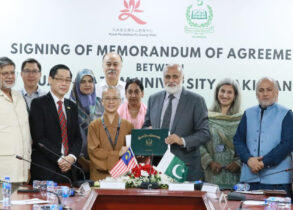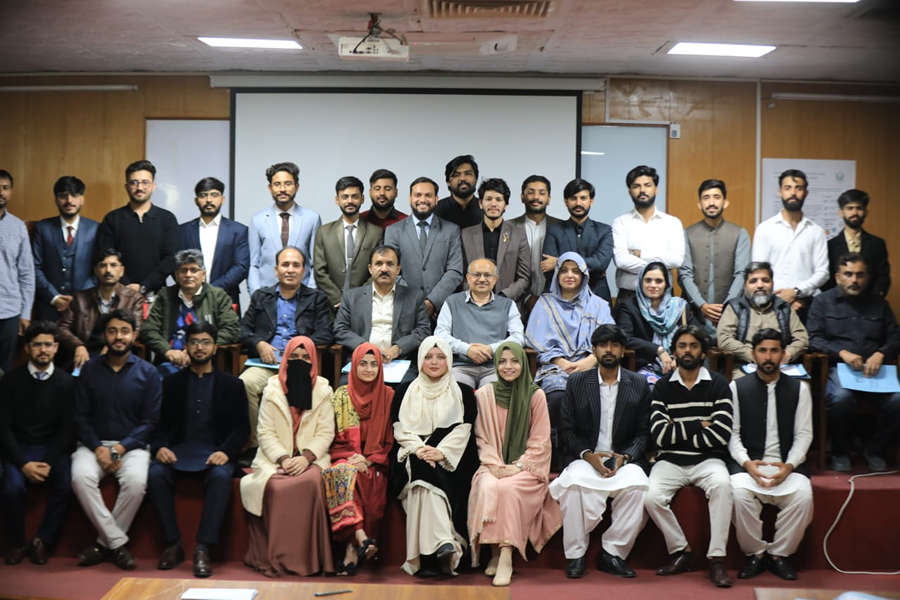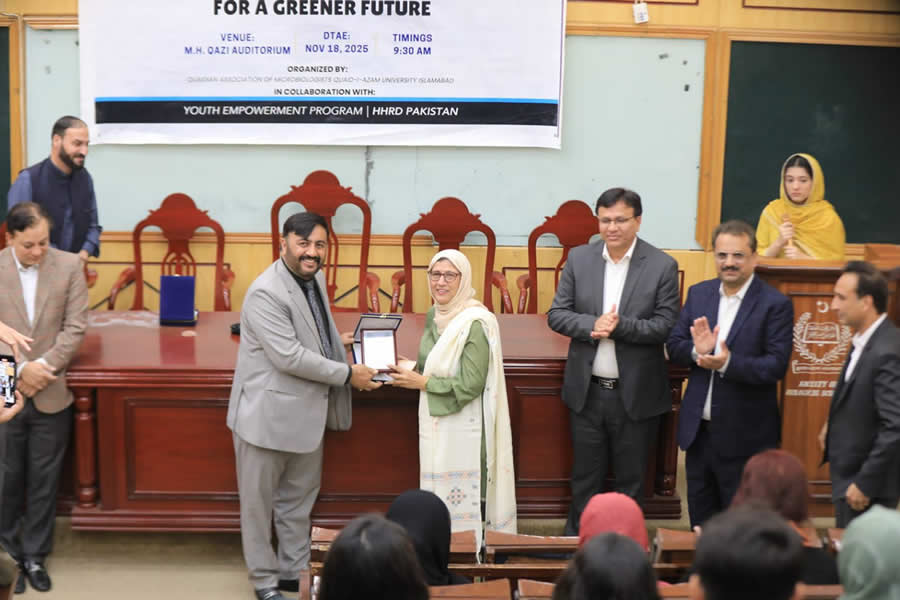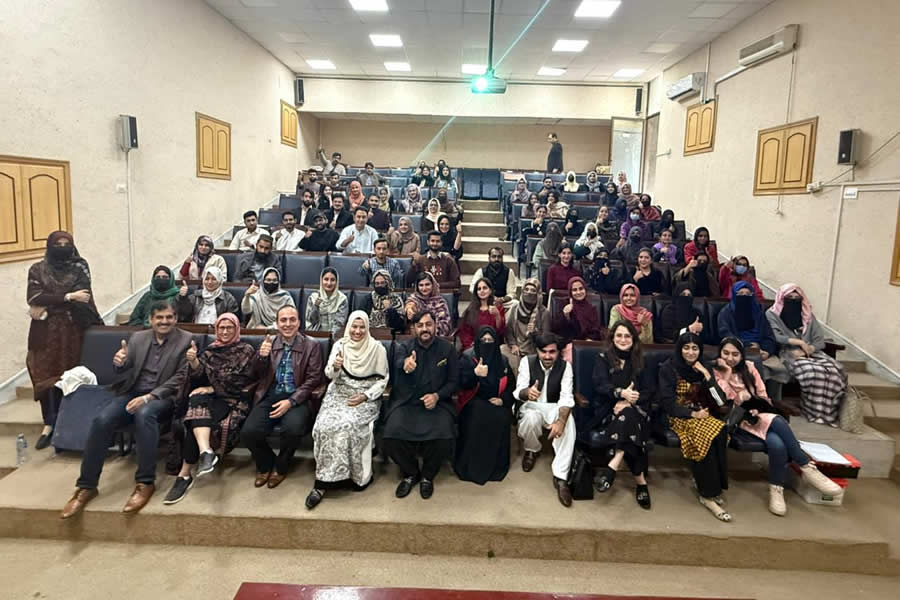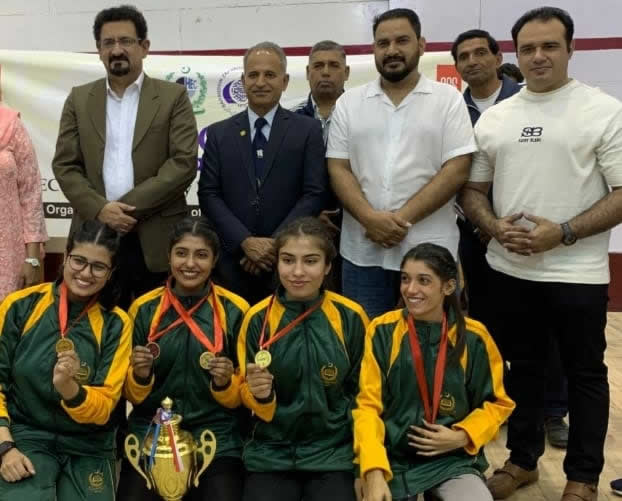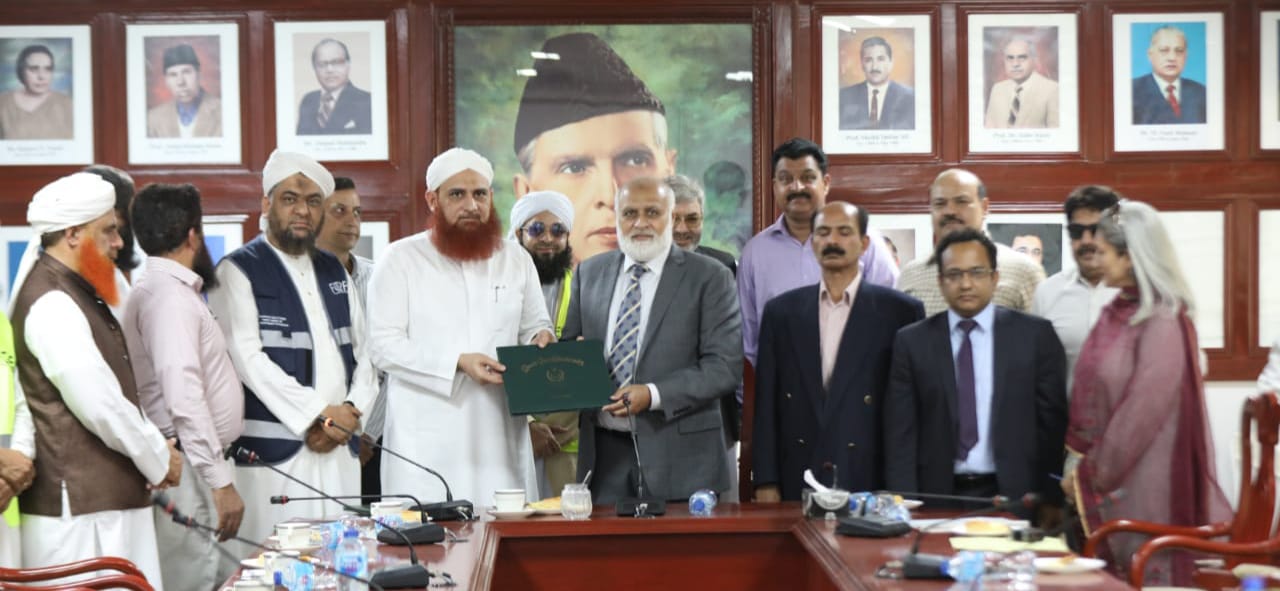NIHCR holds seminar on “The State of Decoloniality in South Asia”
Universities conduct research, create and transfer knowledge to the students resultantly the net learning outcome becomes the bedrock to determine quality assurance in higher education.
This was stated by Prof. Dr. Niaz Ahmad Akhtar, Vice-Chancellor, Quaid-i-Azam University, Islamabad here on Monday.
The learning outcome in higher education can be seen as a development from educational outcome based on competencies which are used to underpin the assessment of related skills, said Prof. Dr. Akhtar while addressing a seminar on “The State of Decoloniality in South Asia” as chief guest.
The seminar was arranged by the National Institute of Historical & Cultural Research (NIHCR), Centre of Excellence, Quaid-i-Azam University, Islamabad at its premises.
The chief guest observed that the pedagogic purposes of learning outcomes are clear, in that they are designed to give a clear indication of the learning destiny. In doing so, the learners are armed with knowledge of the destiny to chart their own journey to this destination.
The guest speaker, Dr. Shahzeb Khan, Assistant Professor, Institute of English Studies, University of the Punjab, Lahore, in his keynote seminal address said that decoloniality was not a means to reject the scientific, medical, social and ethical advances of the modern era; it was rather a way to explore colonization, settler-colonialism, racial capitalism and modernity.
Decoloniality is a method and paradigm of restoration and reparation that depends on context, historical conditions and geography. Therefore, as a method, it aspires to restore, elevate, renew, rediscover and acknowledge and validate the multiplicity of lives, culture and knowledge of indigenous people, people of colour and colonized people, gender hierarchies and racial privilege, Dr. Khan observed.
Earlier, in his welcome address, Dr. Sajid Mahmood Awan, Director NIHCR said that decoloniality seeks to extract meaning from the cultural systems of the pre-colonial period. It also tries to understand the world as it is now, the problems we face and the ideas that have emerged and have not been distorted by colonialism.
Decoloniality implies the recognition and undoing of the hierarchical structures of race, gender and class that continue to control life, knowledge, spirituality and thoughts that are clearly intertwined, Dr. Awan observed.
The NIHCR Senior Research Fellow Dr. Rahat Zubair Malik moderated the event.
 QAU Microbiology Alumni Annual Dinner – A Celebration of Friendship and Success
QAU Microbiology Alumni Annual Dinner – A Celebration of Friendship and Success


